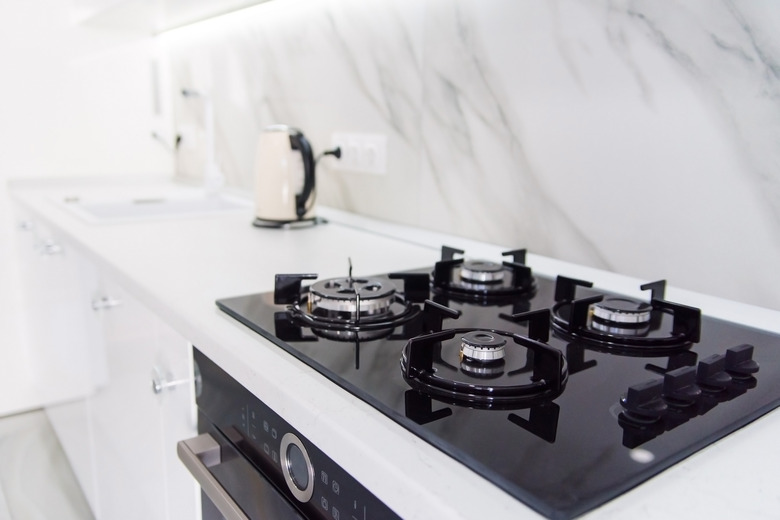How To Tell If Your Gas Stove Is Leaking
We may receive a commission on purchases made from links.
It sounds weird, but if your gas stove smells like gas, you may have a problem. Although gas itself is colorless and odorless, utility companies intentionally add a scent that makes leaks easier to detect. If you smell this distinctive odor, it's time to call the gas company and have them check your appliances.
Stove Gas Leak Signs
Stove Gas Leak Signs
The most clear sign of a stove gas leak is when you notice your stove or oven smells like gas. Not all leaks are this obvious, however, and slow leaks may not cause an odor. You'll need to look for other signs to spot a stove gas leak.
One sign is a yellow or orange flame when cooking on the stove. A strong gas flame is blue, and warm colors may indicate a slow leak. A pilot light that refuses to stay lit can also mean a gas leak, as can houseplants that suddenly die without explanation. These issues can indicate a problem, even if you never notice that your oven smells like gas.
A higher-than-usual gas bill can be another tell-tale sign of a gas leak. Other signs include a hissing sound near your gas lines or appliances or black soot marks on the outside of your stove. You can also use the bubble test to check for small leaks. Spray your gas lines and fittings with warm soapy water. If the mixture bubbles, you have a leak that needs tending.
Install Carbon Monoxide Detectors
Install Carbon Monoxide Detectors
Be it in your stove, furnace, fireplace or car engine, combustion produces a colorless, odorless gas known as carbon monoxide. Although an odor is added to natural gas to help detect leaks, this odor does not transfer to carbon monoxide when gas burns. A carbon monoxide detector is the only way to monitor the CO levels in your home, and it's imperative that you do so.
Carbon monoxide exposure can make you and your family members very sick and can be potentially fatal. Fortunately, protecting yourself is as simple as installing battery-operated detectors around your home. Place a carbon monoxide detector near every sleeping area in your home and 5 to 20 feet away from likely sources of carbon monoxide, such as your gas furnace, gas stove and garage.
Recognize Outdoor Leaks
Recognize Outdoor Leaks
The gas you use to fuel your stove enters your home through underground gas lines. Like the lines in your home, these can rupture or break and may leak. If you see a patch of dead plants and vegetation in your yard, it could be a sign of an underground gas leak.
Like indoor leaks, underground leaks sometimes make a hissing sound. You may also notice a cloudy or hazy look in a certain area. If you see signs of an outdoor gas leak, stay away from the area and call your local gas company so they can make sure there isn't a problem.
What to Do About Leaks
What to Do About Leaks
If you suspect you have a gas leak, err on the side of caution and leave the home or building immediately, taking any pets with you. Do not turn any lights or appliances on or off, as a spark from one could cause any leaking gas to ignite. You can open doors and windows on your way out of the building, however, to help the gas dissipate. If you know where it is and how to do it quickly, you can also shut off the gas at the meter to prevent more gas from entering your home.
Once you're safely outside, call the gas company emergency line or your local authorities. Never call from inside the building as electronic devices like your cell phone and traditional phone lines both carry a current that can cause ignition.
Be aware that gas exposure can cause discomfort. When you suspect a gas leak, seek medical treatment for anyone suffering headaches, nausea, chest pain, disorientation, ringing in the ears or watering eyes. These symptoms typically resolve with a bit of fresh air, but it's always wise to get checked and make sure all is well.
